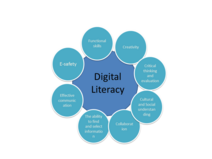
So many libraries now use volunteer – parents, people doing community service, teens, seniors, and more. It’s great to take a few minutes here to think about some strategies to bring in volunteers to help with meaningful tasks in the library, so you can spent time focused on your patrons!
Check out this free webinar from WebJunction. (And while you are there, browse around some of their other offerings! They have all kinds of free classes and webinars available for you to check out on your own time, to be sure you stay current with the skills needed to best serve your community.)
“This webinar explores new trends in library volunteerism and presents practical steps to recruit skilled volunteers to help grow your community of library advocates and supporters.
Library volunteerism is evolving. Gone are the days of looking for tasks to keep your volunteers busy. Libraries are now enlisting high impact volunteers who are bringing unique skills and expertise to enhance the library’s mission. Join us to learn how you can harness the power of skilled volunteers in your community and hear success stories of innovative volunteer engagement in libraries of all sizes and budgets.
Participants in this webinar will learn how to:
- Identify what motivates potential local and virtual volunteers and how to ensure the right fit
- Utilize skilled volunteers at the library
- Design volunteer job descriptions and targeted recruitment plans
- Earn staff buy-in and other strategies for successful volunteer engagement
Volunteers can be your strongest advocates, helping you gain funding and recruit human resources. This webinar will help libraries and library groups revitalize volunteer engagement and grow their community of advocates and supporters.
Presented by: Carla Lehn, principal consultant of the Lehn Group, former Library Programs Consultant of California State Library, and author of the new book, From Library Volunteer to Library Advocate: Tapping into the Power of Community Engagement.”








